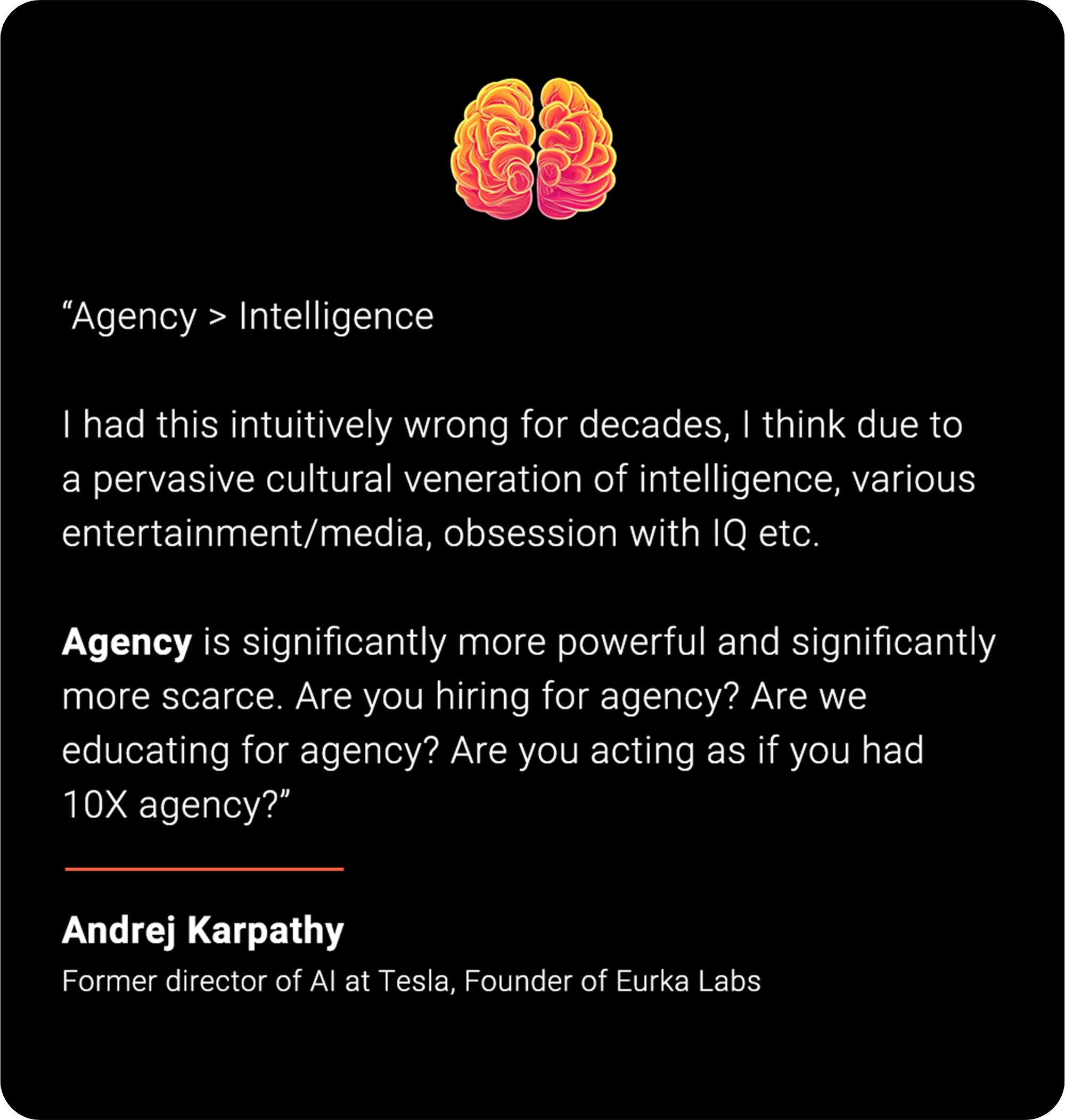Monday Memo

A Byte of Knowledge
We have a productivity fetish these days.
We worship efficiency. Speed. Conversion rate improvements. Getting more out of less.
And yeah, that matters...
When you're working on something that deserves to exist in the first place.
You see, a ton of marketing campaigns are simply polishing a turd.
Beautiful landing pages for products nobody asked for.
Brilliant ad creative driving traffic to offers that solve yesterday's problems.
Influencers shouting your praises for something nobody's going to use twice.
Elon Musk said the most common error of a smart engineer is "optimizing something that shouldn't exist in the first place."
Same goes for marketing.
We're so obsessed with making things work better that we forget to ask if they should work at all.
Because you can split-test headlines until your eyes bleed...
But if the underlying offer is fundamentally broken, you're just rearranging deck chairs on the Titanic.
Before you touch another A/B test or rewrite another subject line, step back.
Ask if this thing actually matters to anyone? Is the product solving a real problem people will pay to fix?
Because the best copy in the world can't save a bad offer. (for long)
🚀 Whether you're selling a $50 supplements or a $10,000 coaching program – having these 5 'Copy Blocks' on your landing page could be the difference between crickets and an avalanche of cash flow.
Discover All 5 'Copy Blocks' Now
Something to Ponder

We Asked – AI Answered
Our Question:
"What's behind the success of quiz funnels, and how have they gotten smarter since they first emerged?"
AI's Answer: Why Quiz Funnels Dominate: The Psychology of Interactive Selling
📈 The Commitment & Consistency Trigger
Robert Cialdini's research proves it: once people invest effort (even 30 seconds), they're psychologically committed to seeing it through.
Quiz funnels exploit this brilliantly. When someone answers question #1, they've made a micro-commitment. By question #3, sunk cost fallacy kicks in. By question #7? They're pot-committed like a poker player who's already thrown half their stack in.
Ryan Levesque's ASK Method revolutionized this in 2015, generating $23M in 18 months for his clients. The secret? Segmentation through self-selection.
⚡ The Evolution Timeline
• 2012-2014: BuzzFeed-style personality quizzes go viral with "Which Disney Princess Are You?" getting 22M views... LeadQuizzes launches in 2014 as first dedicated quiz funnel platform.
• 2015-2016: Ryan Levesque publishes "ASK Method" introducing 15-30 question deep dive surveys... Early adopters see 40-60% opt-in rates with his Bucket.io software.
• 2017-2018: Conditional logic becomes standard as Interact, Outgrow, and ScoreApp enter the market... The "self-liquidating quiz" model emerges (quiz → tripwire → immediate profit).
• 2019-2020: Typeform's dynamic branching based on responses becomes industry standard... COVID accelerates adoption with quiz funnel usage increasing 300% (Outgrow data).
• 2021-2022: AI integration begins with GPT-powered personalized result pages... Video questions enter mainstream via Videoask, pushing completion rates to 85%.
• 2023-2024: Multi-step quizzes integrate with CRMs for behavioral scoring... Personalized VSLs based on quiz answers become the standard for 7-figure launches.
• 2025: Progressive profiling quizzes learn over multiple sessions... Voice-activated and real-time AI coaching experiences emerge.

💰 The Psychological Money Makers
Here's what actually moves the needle:
1. The Zeigarnik Effect - Incomplete tasks create cognitive tension. Once someone starts a quiz, their brain literally won't let them rest until completion. Soviet psychologist Bluma Zeigarnik discovered this in 1927, but marketers only caught on recently.
2. Information Gap Theory - George Loewenstein's research at Carnegie Mellon shows humans have an irrational need to close knowledge gaps. "Find out your score" is marketing crack cocaine.
3. The Barnum Effect - People believe vague, general statements about themselves are highly accurate. Every quiz result that says "You're ambitious but sometimes doubt yourself" feels personally crafted. P.T. Barnum knew this. Modern marketers weaponized it.
📊 Real Performance Data
BuzzSumo analyzed 100M quiz interactions:
• Average completion rate: 78% (vs 2% for long-form sales pages)
• Lead capture rate: 43% (industry average: 2.35%)
• Cost per lead: 50-70% lower than traditional funnels
Ramit Sethi's "Earnable" quiz generated 55,000 qualified leads at $3.20 each (his Facebook ads averaged $18/lead).
🎯 The Dirty Secret 🎯
Quiz funnels work because they're disguised sales conversations. You're literally getting prospects to self-diagnose their problems and self-prescribe your solution. It's consultative selling at scale.
Killer operators now use "negative admission" questions:
- "How many times have you tried to solve this before?"
- "What's stopped you from fixing this already?"
These create what psychologist Leon Festinger called "cognitive dissonance" - the painful gap between where they are and where they want to be.
Thanks for reading the Monday Memo.
Until next time!
The AI Marketers
P.S. Help shape the future of this newsletter – take a short 2-minute survey so we can deliver even better AI marketing insights, prompts, and tools.
[Take Survey Here]

